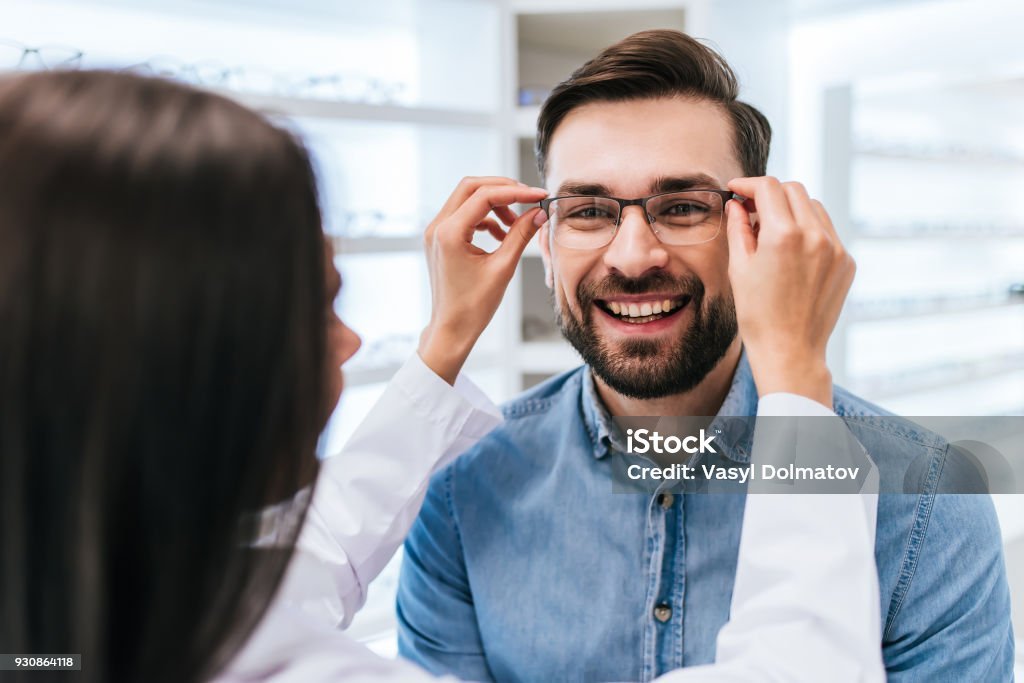
Understanding the Importance of Eye Health
Eye health plays a crucial role in maintaining overall wellbeing and quality of life. Globally, approximately 2.2 billion individuals experience some form of vision impairment, with many of these conditions being preventable. The prevalence of vision problems emphasizes the need for heightened awareness about the importance of regular eye care. From refractive errors such as myopia and hyperopia to more severe conditions like cataracts and macular degeneration, the range of vision impairment impacts a significant portion of the population.
Neglecting eye health not only places individuals at risk for deteriorating vision but can also affect various aspects of their lives. Vision is intricately linked to daily activities, including reading, driving, and engaging in work or hobbies. Poor eye health may lead to reduced efficiency in daily tasks and contribute to psychological distress, such as anxiety and depression. These factors underline the importance of prioritizing eye care routines and addressing potential issues promptly.
Regular eye examinations are essential in detecting problems early. These examinations can identify changes in one’s vision and facilitate timely interventions, ultimately helping prevent irreversible damage. Many vision problems can be managed or treated effectively if caught early. Furthermore, a comprehensive eye examination can serve as a way to monitor overall health, as some systemic conditions manifest symptoms through vision changes.
It is important to educate individuals about the significance of proactive eye care. Engaging in preventive measures, such as wearing protective eyewear, maintaining a balanced diet rich in nutrients like vitamin A and omega-3 fatty acids, and adhering to proper screen time guidelines, can be beneficial for eye health. By fostering a culture that values eye care, it is possible to reduce the global burden of vision impairment, ultimately enhancing the quality of life for millions of people.
Protecting Your Eyes from Harmful Elements

Ensuring optimal eye health encompasses various strategies, particularly in protecting the eyes from harmful elements found in the environment. One of the most significant risks comes from ultraviolet (UV) rays emitted by the sun. Prolonged exposure to these rays can lead to serious eye conditions such as cataracts and macular degeneration, conditions that can substantially impair vision over time. Therefore, wearing sunglasses that provide 100% UV protection is essential when outdoors. These sunglasses act as a barrier, shielding the eyes from both UVA and UVB rays. Additionally, they help to protect the delicate skin surrounding the eyes, reducing the risk of skin cancer in that vulnerable area.
Furthermore, the choice of sunglasses should be guided not only by style but also by efficacy. Look for glasses that block at least 99% of UV radiation, along with options that offer polarization, which can reduce glare from surfaces like water and roads. This polarization can enhance visual comfort and clarity, making it easier to see in bright conditions while also providing further protection for the eyes.
In addition to UV exposure, it is crucial to consider other environmental factors that may adversely affect eye health. For instance, excessive screen time has become prevalent with advancements in technology and may lead to digital eye strain, a condition characterized by discomfort, dryness, and fatigue. To mitigate these effects, it’s advisable to adopt the 20-20-20 rule: every 20 minutes, take a break and look at something 20 feet away for at least 20 seconds. Moreover, maintaining good lighting while working on screens and utilizing protective eyewear designed for screen use can help alleviate strain.
Overall, by taking these proactive measures, individuals can effectively safeguard their visual health against harmful elements, thereby lowering their risk of developing serious eye conditions over time.
Healthy Habits for Eye Care

Maintaining eye health is paramount in today’s digital age, where screen time is on the rise. One effective strategy for protecting your vision is the 20-20-20 rule, which encourages individuals to take a break every 20 minutes by looking at something 20 feet away for at least 20 seconds. This simple practice can significantly reduce the eye strain associated with prolonged screen exposure, promoting overall eye wellness. It is essential to remind oneself to adhere to this rule, particularly when engaged in activities that require extended focus.
In addition to managing screen time, regular exercise plays a vital role in maintaining eye health. Engaging in physical activity helps improve blood circulation, ensuring that essential nutrients are delivered to the eyes. Furthermore, moderate aerobic exercises, such as walking, cycling, or jogging, have been shown to lower the risk of developing eye-related conditions, including glaucoma and macular degeneration. Combining exercise with healthy dietary habits can further enhance eye health by supporting overall bodily functions.
Moreover, spending time outdoors significantly benefits visual health, especially in children. Research indicates that children who participate in outdoor activities are less likely to develop myopia, or nearsightedness. Sunlight exposure can aid in the production of dopamine, a neurotransmitter that plays a crucial role in eye development. Encouraging children to engage in outdoor games or sports can foster healthy vision habits that will carry into adulthood.
Another critical aspect of eye care is smoking cessation, which has profound implications for eye health. Smoking has been linked to an increased risk of various eye diseases, including cataracts and age-related macular degeneration. By quitting smoking, individuals can dramatically lower their chances of developing these conditions and promote long-lasting eye health. Incorporating these healthy habits into one’s daily routine can help maintain optimal vision and reduce the risk of eye-related issues.
Nutrition and Hygiene for Optimal Eye Health
Maintaining optimal eye health is significantly influenced by nutrition and hygiene practices. A balanced diet rich in essential vitamins and minerals plays a crucial role in supporting vision and preventing eye diseases. Nutrients such as lutein, zeaxanthin, omega-3 fatty acids, vitamin C, vitamin E, and zinc have been shown to have beneficial effects on eye health.
Lutein and zeaxanthin, primarily found in leafy greens like spinach and kale, are carotenoids that help filter harmful blue light and protect the retina. Omega-3 fatty acids, prevalent in fatty fish such as salmon and walnuts, can reduce the risk of dry eyes and macular degeneration. Additionally, vitamins C and E are powerful antioxidants that help protect the eyes from oxidative stress. Foods rich in these nutrients, including oranges, nuts, and seeds, should be incorporated into daily meals.
Moreover, maintaining proper hydration is essential for overall health, including the eyes. Drinking an adequate amount of water supports the body’s functions and helps to keep the eyes moist, reducing the risk of irritation and dryness.
Equally important as nutrition is the practice of proper eye hygiene. Simple habits can significantly impact eye health. Always wash hands before touching the eyes or handling contact lenses. This prevents the transmission of harmful bacteria that could lead to infections. Rubbing the eyes can cause irritation or introduce harmful microorganisms; thus, avoiding this habit is advised.
Furthermore, it is essential to remove eye makeup before bed to prevent clogged pores and potential infections. Using gentle cleansers and ensuring that all makeup is thoroughly removed will help maintain the health of the eyelids and surrounding areas. Proper nutrition and excellent hygiene practices are fundamental components of sustaining eye health over a lifetime.




[…] When discussing beauty and health, collagen is often considered one of the most important factors. This abundant protein has significant roles not only in maintaining youthful skin but also in ensuring the flexibility of joints, the health of muscles, and even the integrity of bones. Collagen is the foundation of much of the connective tissue in the body. From keeping your skin smooth and firm to supporting the structure of your tendons and ligaments, collagen truly holds everything together. However, as we age, our bodies produce less collagen, leading to common signs of aging such as wrinkles, sagging skin, and joint pain. In this article, we will explore the wonders of collagen, its impact on skin rejuvenation, the signs of low collagen, and how to boost its production naturally through diet, lifestyle, and supplements. […]